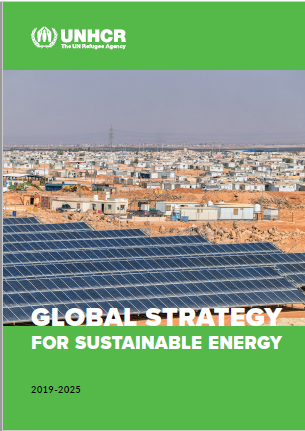Gender equality and social inclusion (GESI) is important to issues across all stages of the conceptualization, development and implementation of interventions, even more so in displacement settings. In displacement settings there are diverse populations, needs, perspectives and options for refugees and host communities influenced by age, religion, ethnicity, vulnerabilities, (minority groups and people with disabilities, etc). Gender mainstreaming into ILA aims at empowering women, men, youth and vulnerable groups to benefit equitably.
Create an enabling and inclusive environment for women, men, girls, youth, minorities and people living with disabilities (PLWDs)
- Conduct a Gender Equality and Social Inclusion analysis (include norms and cultural traits that disadvantage women, girls and minorities).
- Engage women, girls, youth, minorities and people living with disabilities in refugee landscapes for attainment of sustainable livelihoods.
Ensure inclusive participation and engagement of women, girls, youth and minorities
- Engage women, girls, youth and minorities in displacement settings so as to reflect their preferences and priorities in development initiatives.
Identify the nature of resource distribution among men and women in displacement settings
- Map out resources and establish their distribution/ownership and access regimes based on gender.
Implement an effective MEL system to ensure sustainability outcomes consider women, girls, youth and minority groups in displacement settings
- Develop key indicators of social inclusion in the refugee hosting landscape (include specific indicators such as effect of interventions on women, girls and minority groups).
- Implement a gender inclusive participatory MEL system.
Mainstreaming GESI under the Response to Increased Environmental Degradation and Promotion of Alternative Energy Sources in Refugee Hosting Districts (RED) project in Rhino Refugee Camp Settlement in Madi-Okollo district
GESI work is a component of the RED project for improving long-term capacity to design and implement gender responsive environment programming, and focuses on empowering women and increasing women’s participation in coordination mechanisms/structures at the local government and community levels. GESI work on this capacity development component of the project involves gender capacity assessment; development of GESI action plans; and training. GESI contributes to the project goals of increased environmental protection, forest restoration, improved sustainable energy and alternative livelihoods for displaced populations and their host communities in refugee hosting areas in Uganda, namely Adjumani, Terego, Madi Okollo, Kiryandongo and Yumbe.
The RED project is being implemented from 2021–2024 by Save the Children, ICRAF, the Belgian Development Agency (Enabel) and Joint Energy Environment Projects (JEEP) in close collaboration with the Government of Uganda, including district local governments, the Office of the Prime Minister (OPM), and other relevant partners. The project is funded by the EU Emergency Trust Fund for Africa.
Source: Guidance for a Landscape Approach in Displacement Settings (GLADS): Uganda Case Study. Buyinza J, Gambo J, Acanakwo E, Schure J, Sola P, Awono A, Njenga M. 2022. Bogor, Indonesia; Nairobi: CIFOR-ICRAF.








